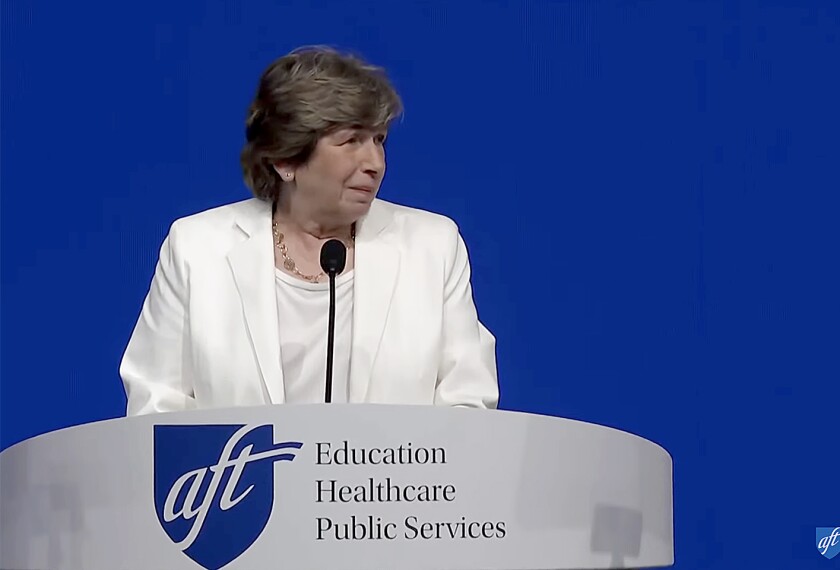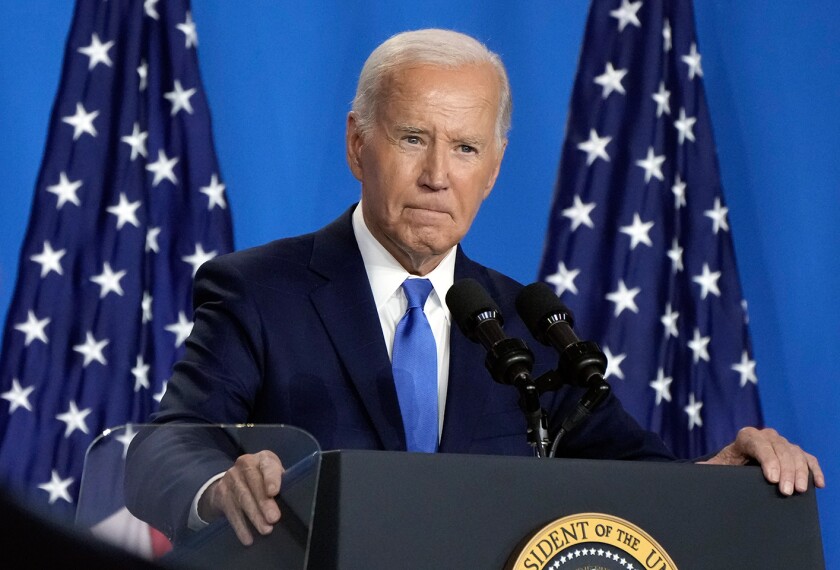As a conservative, I understand why Republicans and Republican-leaning voters say “dealing with immigration” should be a top priority for President Joe Biden and Congress this year. And no, it’s not just because Fox News and other right-wing media are highlighting the border crisis 24/7.
Any fair-minded assessment of our immigration system would acknowledge that it is badly broken—millions of people streaming into our country every year with our asylum laws serving as a pretext for entering. The United States sorely needs immigrants, and is stronger because of them, but no country can long survive if it can’t control its borders.
Now, the issue has merged with the culture war over education. The spark was a policy proposal from the Heritage Foundation, a conservative think tank with close ties to former President Donald Trump. The Heritage analysts urged states to charge tuition to migrant families when they send their children to public schools. This provocative proposal is meant to spark a lawsuit that might overturn a 40-year U.S. Supreme Court precedent finding that undocumented children have a constitutional right to a public education just like everyone else.
Like most people in education, I suspect, I believe that keeping migrant children out of our public schools is morally wrong. It doesn’t matter if they’re “legal.” Recall what the late Cardinal James Hickey once said in reference to Roman Catholic schools serving low-income students regardless of their faith.
“We don’t educate these children because they are Catholic but because we are Catholic.”
Likewise, we don’t educate migrant children because they are American but because we are American.
We are a great and generous nation that should treat anyone on our soil with care and respect, especially the most vulnerable. Perhaps it is debatable that such treatment is guaranteed by the U.S. Constitution or even state constitutions. But for me, the key question isn’t whether migrant children have a right to an education but what’s right.
Educating all children living in our country is the right thing to do.
But it’s also right—and necessary—to stem the flow of immigrants across our borders. Indeed, we can be, must be, pro-immigration, pro-compassion, and also pro-law and order.
Millions of people are abusing our asylum laws to seek entry into the United States. Aspiring immigrants have learned that if they reach American soil and turn themselves into the authorities, they have a right to request asylum, even if their claims are weak. But because asylum cases take so long to get resolved, they also know they will be able to stay in the United States, work, and, if necessary, disappear.
Solving this problem is hard, and though I’m no immigration expert, the bipartisan immigration bill that gained momentum this winter showed a lot of promise until Trump shot it down. Among other things, it addressed the backlog of asylum claims and tightened up the qualification rules. The fact that the former president killed it is yet another reason I’m proud to call myself a Never-Trump conservative.
We don't educate migrant children because they are American but because we are American.
But Trump and his acolytes aren’t completely wrong about one thing: If we send signals to people around the world that they have a decent shot at getting across our border and may be allowed to stay, more will give it a try. That’s exactly what Biden telegraphed at the beginning of his term, when he talked about a more compassionate approach to immigration—and sure enough, a surge in illegal immigration soon followed.
This issue around incentives is what motivated the Heritage paper that started the recent hullabaloo. Its authors want our policies to signal to potential illegal immigrants that life will not be easy for them and their families if they manage to make it into the United States. Deterrence is the point.
I get that, but such thinking leads to dark places. Indeed, during Trump’s presidency, it paved the way for the abhorrent policy of separating migrant children from their families—a brutal decision that its advocates hoped would discourage other families from making the crossing, too.
Keeping kids out of school—which is what would happen were dirt-poor families required to pay tuition to enroll their children, as Heritage proposed—isn’t quite as awful as separating them from their parents. But it’s still very bad. Here’s a straightforward rule to follow: Never target children as instruments in a strategy of deterrence. They should not be used as human shields, and their mistreatment should not be threatened to discourage illegal immigration.
Meanwhile, Uncle Sam should step up to provide funding to school districts affected by the migrant crisis. Akin to the Impact Aid program for communities near military bases and other federal or Indian lands, the feds should acknowledge their special responsibility to pay for the education of children who are here thanks to the broken (federal) immigration system. After all, you break it, you pay for it. Furthermore, many of the children arriving at our borders, and then bused to big cities, barely speak English. Effectively serving these multilingual learners takes extra resources and expertise; the least Washington can do is show local school districts the money.
In a rational world, families with weak asylum claims would be turned back at our border or flown back to their home countries immediately. Those with strong claims would be granted asylum quickly and welcomed into our nation. Other legal routes to immigration would be strengthened and widened, and the rule of law would return.
Until that day comes, we should treat migrant families and especially their children fairly and humanely—even if many of them shouldn’t have entered in the first place.






